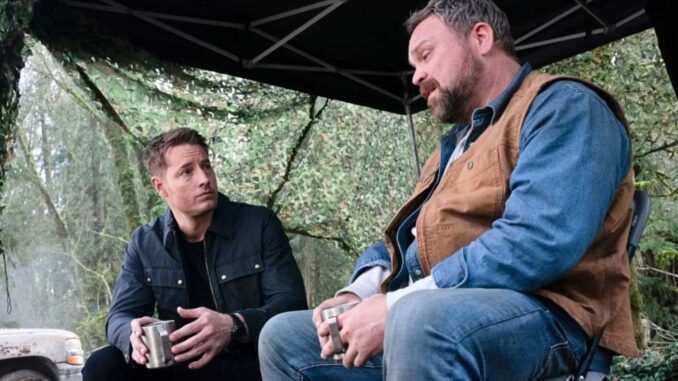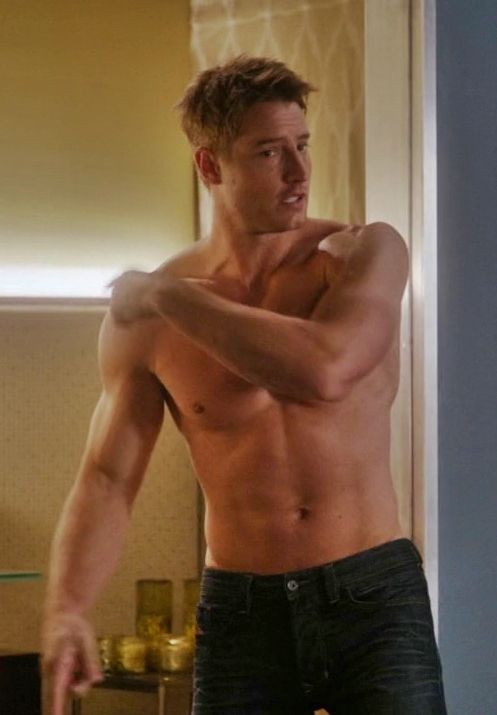
Action heroes of the past are much more toxically masculine. Hartley’s take on the reason for Tracker’s success with the audience is definitely one that surprised me, but it is also likely a contributor to viewers sticking with the show since the premiere. Colter Shaw makes for a different kind of action hero with Tracker like a modern Western.
Action heroes of the past are much more toxically masculine. These are the kinds of characters who ignore the needs of others around them in order to achieve their own goals, they take advantage of the women whose paths they cross, and they always have to be the biggest and loudest force in the room. Colter is the opposite of that. While he might keep himself closed off when it comes to his past and the traumas associated with his family, he is more than willing to offer complete strangers support, empathy, and his own strength to help them through their traumas.
While Colter is busy searching for clues in seemingly impossible cases, he always handles witnesses or those who know the victims with kid gloves. He is soft spoken and understanding, waiting to understand who they are and what they know before he ever accuses anyone of anything. Even in the season 2 episode “The Nightingale,” in which Colter is faced with those who prefer violence do the talking, he chooses to use his words first. There, he is faced with gang members, angry police officers, and a survivalist, and he still attempts to diffuse situations by talking things out.
That is very much the hallmark of Colter’s character. Colter Shaw has all the skills (and then some) of classic action heroes, but without all of their toxic traits. That makes him a refreshing hero for today’s TV climate, where many newer procedurals are being canceled, and many characters are not getting the chance to be fleshed out. Tracker will likely outlive many of the newer procedurals, and that is due in large part to Hartley’s correct assessment of Colter Shaw’s positive masculinity.
We live in a time when the term “masculinity” is often followed by words like “toxic,” “outdated,” or “problematic.” But not all portrayals of manhood are broken. In CBS’s hit series Tracker, Justin Hartley’s portrayal of Colter Shaw quietly introduces viewers to a different kind of masculinity—one that doesn’t shout but speaks volumes. It’s emotionally intelligent, respectful, self-assured, and above all—healthy. Let’s explore how Colter Shaw isn’t just chasing people—he’s tracking a whole new blueprint of what it means to be a modern man.
Understanding Colter Shaw – A Brief Character Overview
Who Is Colter Shaw?
Colter Shaw is a lone-wolf survivalist and reward-seeker who travels across America solving crimes, locating missing persons, and helping the vulnerable. While his skills are badass and his instincts razor-sharp, what makes him stand out isn’t just his capability—it’s his character.
What Makes Him Different?
Colter isn’t fueled by rage, vengeance, or ego. Instead, he runs on a deep sense of justice, personal responsibility, and empathy. That’s rare for a male lead in modern drama. And it’s refreshing.
The Core Traits of Colter’s Healthy Masculinity
1. Emotional Intelligence
Colter listens. Really listens. In a show filled with tension and danger, he remains emotionally grounded. Whether he’s consoling a grieving mother or negotiating with a desperate suspect, he stays calm, empathetic, and perceptive.
2. Confidence Without Arrogance
Confidence is a signature trait of healthy masculinity—and Colter wears it well. He doesn’t need to dominate a room to be respected. His skills speak for themselves, and he never brags. That silent strength? That’s what healthy confidence looks like.
3. Respect for Women
Tracker doesn’t lean on outdated gender roles. Colter respects every woman he interacts with—partners, clients, even strangers. He collaborates with women, listens to their perspectives, and never underestimates them.
How Tracker Breaks Stereotypes Through Colter
A Modern Male Lead Without Toxic Baggage
Gone are the days of brooding, emotionally unavailable tough guys. Colter is complex, yes—but not emotionally stunted. He feels, he questions, and he learns. And he’s better for it.
A Protector Without Possessiveness
Colter steps up to protect others—not because he sees them as weak, but because he recognizes the strength in community and shared responsibility.
Competence Without Cruelty
In many dramas, male leads assert dominance through violence or intimidation. Colter chooses precision, patience, and wisdom. When he does use force, it’s always measured and never gratuitous.
Why Healthy Masculinity Matters in Pop Culture
The Influence of Media Role Models
Let’s face it—TV shapes minds. Kids and adults alike absorb messages from the shows they binge. That’s why showing healthy masculinity isn’t just nice—it’s necessary. Colter offers a new model for men of all ages.
The Power of Representation
Colter doesn’t just represent a different kind of man—he represents the possibility of one. For viewers who haven’t seen this version of masculinity in real life, he plants the seed that it’s not only real, but admirable.
The Psychology Behind Colter’s Appeal
Attachment Theory at Play
Colter displays traits of a securely attached individual. He has boundaries, isn’t emotionally reactive, and knows how to communicate without manipulation. In psychological terms, he’s a walking example of emotional maturity.
He Mirrors the ‘Strong Silent Type’—But Evolved
Yes, he’s quiet. Yes, he’s strong. But unlike the old Hollywood cowboys, Colter’s silence isn’t repressive—it’s reflective. And when he speaks, it’s meaningful.
Masculinity in the Wild vs. Society
Colter in Nature
Much of Tracker takes place in remote settings—forests, small towns, isolated highways. Colter thrives here, relying on instincts, survival skills, and self-discipline.
Colter in Civilization
When back in society, Colter seamlessly transitions. He communicates well, knows how to cooperate with law enforcement and civilians alike, and never loses himself in the noise.
Real-Life Lessons From Colter’s Character
Lesson #1: Strength Is Self-Control
One of Colter’s greatest powers is his ability to stay calm under pressure. He shows that strength isn’t about reacting—it’s about knowing when and how to act.
Lesson #2: Be Curious, Not Judgmental
Colter approaches each case with curiosity, not assumptions. That mindset helps him understand people—not label them. And we could all use more of that in daily life.
Lesson #3: Integrity Is Non-Negotiable
Even when a case could be solved faster by cutting corners, Colter sticks to his moral compass. He’s proof that doing things the right way is still cool.
Colter Shaw vs. Other Male Leads
How He Stacks Up to Action Heroes
Unlike many male leads who rely on brute strength, Colter blends intellect, empathy, and skill. Think Jason Bourne meets Mr. Rogers—with a dash of Indiana Jones.

Compared to TV Detectives
Most TV detectives are either deeply flawed or too perfect to be real. Colter finds the sweet spot: he’s capable but vulnerable, wise but still growing.
The Future of Healthy Masculinity in Entertainment
Why We Need More Colters
Characters like Colter pave the way for a future where masculinity isn’t feared, but respected. Where young boys learn that being a man means being kind, strong, responsible, and real.
A Call to Writers and Producers
Let Colter Shaw be the blueprint. We don’t need more emotionally detached antiheroes. We need men on screen who reflect the best in us—not just the most broken.
Conclusion: The Quiet Revolution of Colter Shaw
Colter’s not flashy. He’s not loud. He doesn’t give big speeches or dominate the room. But maybe that’s what makes him so powerful. Tracker offers viewers more than just suspense—it offers an emotional education, a character to aspire to, and a refreshing reminder that strength and kindness are not mutually exclusive. Colter Shaw is quietly leading a revolution in how masculinity is portrayed. And it’s about time we all started paying attention.